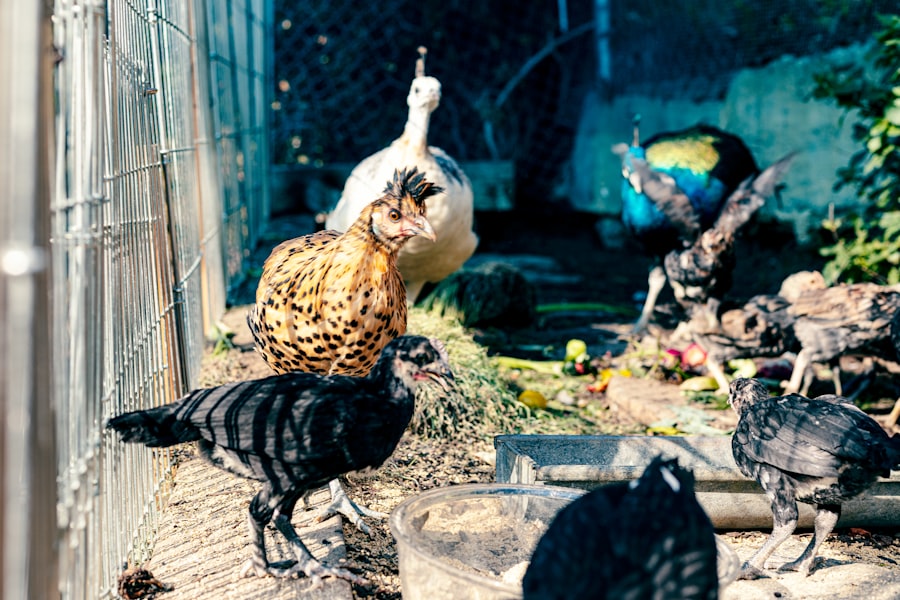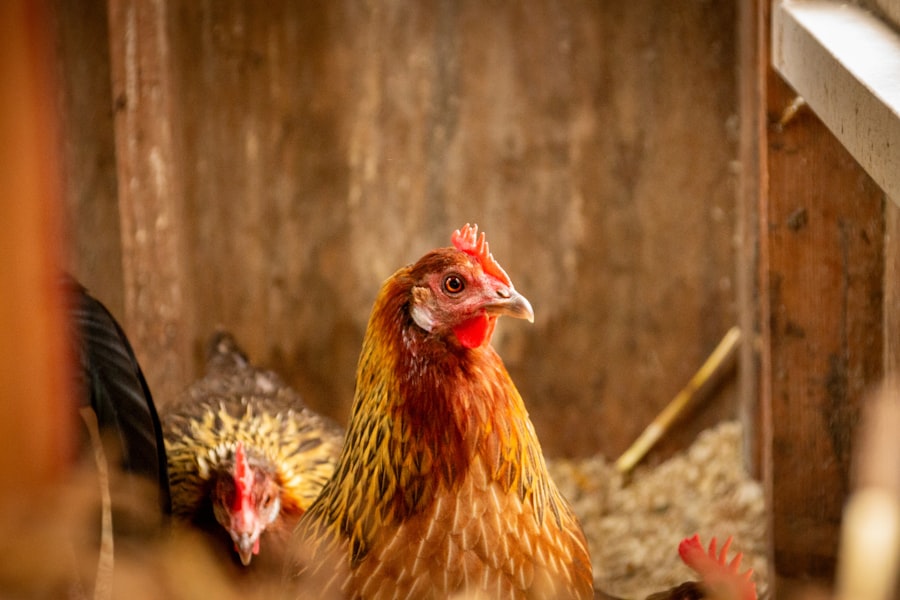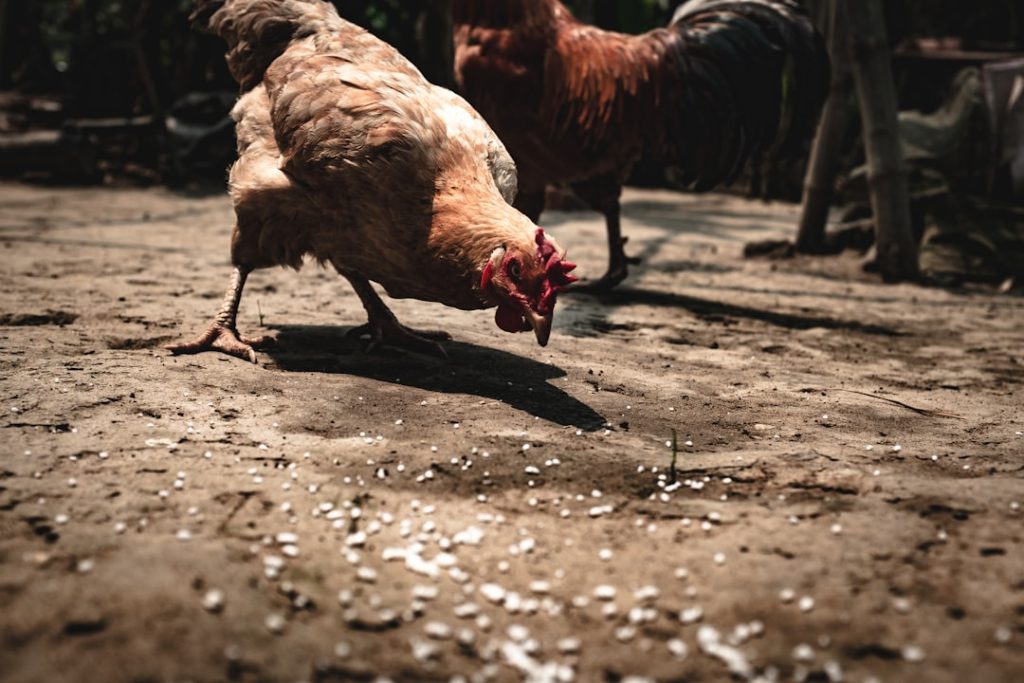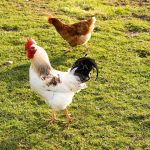Weasels are small, carnivorous mammals characterized by their slender bodies and agile movements. These skilled hunters can overpower prey significantly larger than themselves. As opportunistic predators, weasels consume a variety of food sources, including small rodents, birds, eggs, and young chickens.
Their ability to access chicken coops poses a significant threat to poultry flocks if proper precautions are not taken. The weasel’s capacity to squeeze through small openings facilitates easy entry into chicken coops. Once inside, they may kill multiple birds in a single night, often leaving carcasses behind as they move on to the next victim.
Weasels are most active during dawn and dusk, making it challenging for chicken owners to monitor and protect their flocks during these periods. Understanding weasel behavior is essential for implementing effective protective strategies. Weasels are stealthy and elusive, with excellent climbing abilities that allow them to scale fences and other barriers while hunting.
Their small size and agility make them formidable predators, capable of navigating tight spaces and evading capture. Chicken owners must recognize the threat posed by weasels and take proactive measures to safeguard their flocks from these cunning animals.
Table of Contents
- 1 Securing the chicken coop: Tips for fortifying the coop against weasel intrusion
- 2 Deterrents and repellents: Natural and humane methods to discourage weasels
- 3 Nighttime precautions: Protecting chickens during the hours when weasels are most active
- 4 Monitoring and surveillance: Keeping a close eye on the coop and surrounding area
- 5 Trapping and removal: Safe and effective methods for capturing and relocating weasels
- 6 Seeking professional help: When to call in experts for assistance with weasel control
- 7 FAQs
- 7.1 What are weasels and why do they kill chickens?
- 7.2 How can I identify if weasels are killing my chickens?
- 7.3 What are some effective methods for keeping weasels away from chickens?
- 7.4 Are there any natural predators of weasels that can help control their population?
- 7.5 What should I do if I suspect weasels are killing my chickens?
Key Takeaways
- Weasels are skilled hunters and can fit through small openings, making them a threat to chicken coops.
- Fortify the coop by using hardware cloth, burying it underground, and securing all openings to prevent weasel intrusion.
- Use natural deterrents like predator urine, strong-smelling plants, and motion-activated lights to discourage weasels from approaching the coop.
- Implement nighttime precautions such as locking chickens in a secure area and installing predator-proof locks on coop doors.
- Regularly monitor the coop and surrounding area for signs of weasel activity, such as tracks and droppings.
- Consider using live traps and relocating weasels to a suitable habitat away from the coop.
- Seek professional help if weasel infestation persists or if you are unsure about handling weasel control on your own.
Securing the chicken coop: Tips for fortifying the coop against weasel intrusion
Inspecting and Sealing the Coop
One of the first steps in securing the coop is to inspect the entire structure for any gaps or openings that weasels could use to enter. This includes checking for holes in the walls, gaps under doors, and openings in the roof. Any potential entry points should be sealed with sturdy materials such as hardware cloth or metal flashing to prevent weasels from getting inside.
Reinforcing the Coop
In addition to sealing off potential entry points, it is important to reinforce the coop with sturdy materials that weasels cannot easily penetrate. This includes using heavy-duty wire mesh on windows and vents, as well as adding a secure locking mechanism to all doors. It is also important to bury wire mesh around the perimeter of the coop to prevent weasels from digging underneath and gaining access from below.
Maintaining a Secure Surrounding Area
Another important aspect of securing the chicken coop is to keep the surrounding area clear of debris and overgrown vegetation that could provide cover for weasels. This includes trimming back bushes and shrubs, removing piles of brush or wood, and keeping the area around the coop well-lit. By eliminating potential hiding spots for weasels, chicken owners can make it more difficult for these predators to approach the coop undetected.
Deterrents and repellents: Natural and humane methods to discourage weasels

In addition to securing the chicken coop, there are natural and humane methods that can be used to discourage weasels from approaching the area. One effective deterrent is the use of strong-smelling substances that weasels find unpleasant. This can include spreading predator urine around the perimeter of the coop, as well as using strong-smelling plants such as lavender or mint to create a barrier that weasels are reluctant to cross.
Another natural deterrent is the use of motion-activated lights or sound devices that startle weasels and discourage them from approaching the coop. Another natural method for deterring weasels is to introduce predator species that are known to prey on weasels. This can include keeping a guard dog or introducing larger predators such as owls or hawks in the area.
These natural predators can help keep weasel populations in check and discourage them from approaching the chicken coop. In addition to natural deterrents, there are also humane methods that can be used to discourage weasels from approaching the coop. This includes using non-lethal traps that capture weasels without harming them, as well as using visual deterrents such as scarecrows or reflective tape that startle weasels and discourage them from approaching.
It is important to note that while deterrents and repellents can be effective in discouraging weasels from approaching the chicken coop, they should be used in conjunction with other protective measures such as securing the coop and monitoring the area closely. By combining natural and humane methods with proactive measures to secure the coop, chicken owners can create a comprehensive strategy for protecting their flock from weasel predation.
Nighttime precautions: Protecting chickens during the hours when weasels are most active
Weasels are most active during the early morning and late evening hours, making it crucial for chicken owners to take precautions to protect their flock during these times. One important nighttime precaution is to ensure that all chickens are securely locked inside the coop before nightfall. This includes checking all doors and windows to make sure they are tightly closed and latched, as well as inspecting the perimeter of the coop for any signs of potential entry points that weasels could exploit.
By keeping chickens safely confined inside the coop during the hours when weasels are most active, chicken owners can greatly reduce the risk of predation. In addition to securing the coop at night, it is important to provide adequate lighting around the area to deter weasels from approaching. Motion-activated lights can startle weasels and discourage them from coming near the coop, while also providing visibility for monitoring the area during nighttime hours.
It is also important to avoid leaving food or water sources outside of the coop at night, as this can attract weasels and other predators. By taking these nighttime precautions, chicken owners can create a safer environment for their flock during the hours when weasels are most active. Another important nighttime precaution is to consider using guard animals such as dogs or geese that can help protect the flock from predators.
These animals can provide an added layer of security by alerting owners to potential threats and deterring weasels from approaching the coop. By implementing these nighttime precautions, chicken owners can help protect their flock from weasel predation during the hours when these predators are most active.
Monitoring and surveillance: Keeping a close eye on the coop and surrounding area
Monitoring and surveillance are essential components of protecting a chicken flock from weasel predation. Regular monitoring of the coop and surrounding area can help chicken owners detect signs of weasel activity and take proactive measures to prevent predation. This includes conducting regular inspections of the coop for any signs of damage or potential entry points that weasels could exploit.
It is also important to keep an eye on the surrounding area for any signs of weasel activity, such as tracks or droppings. In addition to regular inspections, it is important to consider using surveillance cameras or motion-activated sensors to monitor the area around the coop. These devices can provide valuable information about weasel activity and help chicken owners identify potential vulnerabilities in their security measures.
By keeping a close eye on the coop and surrounding area, chicken owners can stay one step ahead of potential threats and take proactive measures to protect their flock from weasel predation. Another important aspect of monitoring and surveillance is to pay attention to any changes in behavior or appearance in the flock. Chickens that appear stressed or agitated may be reacting to the presence of a predator such as a weasel, so it is important for chicken owners to be attentive to these signs and take action if necessary.
By maintaining regular monitoring and surveillance of the coop and surrounding area, chicken owners can create a safer environment for their flock and reduce the risk of weasel predation.
Trapping and removal: Safe and effective methods for capturing and relocating weasels

Humane Trapping Methods
In some cases, trapping and removing weasels may be necessary to protect a chicken flock from predation. There are safe and effective methods that can be used to capture weasels without harming them, allowing for their relocation away from the area. One common method for trapping weasels is to use live traps that capture the animal without causing injury.
Trap Placement and Handling
These traps should be placed in areas where weasels are likely to travel, such as near potential entry points or areas where signs of weasel activity have been detected. Once a weasel has been captured, it should be handled carefully to avoid causing unnecessary stress or harm. Weasels can be safely transported in a covered trap or carrier to a suitable release site away from the area where they were captured.
Release and Relocation
It is important to release weasels in a location with suitable habitat and food sources, away from human habitation and other potential threats. It is important for chicken owners to check local regulations regarding trapping and relocating wildlife before attempting to capture weasels on their own property. In some areas, it may be necessary to obtain a permit or seek assistance from wildlife authorities when dealing with nuisance wildlife such as weasels.
Protecting Flocks and Treating Predators Humanely
By using safe and effective methods for trapping and removing weasels, chicken owners can help protect their flock from predation while also ensuring the humane treatment of these predators.
Seeking professional help: When to call in experts for assistance with weasel control
In some cases, dealing with weasel predation may require professional assistance from experts in wildlife control. If efforts to secure the coop, deter weasels, and monitor the area have not been successful in preventing predation, it may be necessary to seek help from professionals who have experience in dealing with nuisance wildlife such as weasels. Wildlife control experts can provide valuable assistance in assessing the situation, identifying potential vulnerabilities in security measures, and implementing effective strategies for preventing weasel predation.
They may also have access to specialized equipment and techniques for capturing and removing weasels safely and humanely. In addition to seeking professional help with trapping and removal, wildlife control experts can also provide guidance on long-term strategies for preventing future predation by weasels and other predators. This may include recommendations for habitat modification, deterrents, and other proactive measures that can help protect a chicken flock from harm.
By seeking professional help when dealing with persistent issues related to weasel predation, chicken owners can gain access to valuable expertise and resources that can help them effectively manage this threat and protect their flock from harm. In conclusion, understanding the threat posed by weasels and implementing effective strategies for protecting a chicken flock from predation requires careful attention to detail and proactive measures. By securing the coop, using natural deterrents, taking nighttime precautions, monitoring the area closely, using safe trapping methods when necessary, and seeking professional help when needed, chicken owners can create a safer environment for their flock while also ensuring the humane treatment of these predators.
With careful planning and proactive management, it is possible to effectively manage the threat posed by weasels and protect a chicken flock from harm.
If you’re looking for ways to protect your chickens from predators like weasels, you may also be interested in learning how to insulate a chicken coop to keep your birds warm and safe during the winter months. Check out this helpful article on how to insulate a chicken coop for tips and advice on creating a cozy and secure environment for your feathered friends.
FAQs
What are weasels and why do they kill chickens?
Weasels are small, carnivorous mammals that are known for their ability to hunt and kill small animals, including chickens. They are attracted to chickens as a source of food and may pose a threat to poultry farms and backyard chicken coops.
How can I identify if weasels are killing my chickens?
Signs of weasel predation on chickens include missing birds, bite marks on the neck or head, and the presence of small, weasel-sized holes in the coop or run. Weasels are known for their ability to kill multiple birds in a single attack.
What are some effective methods for keeping weasels away from chickens?
Some effective methods for keeping weasels away from chickens include securing the coop with sturdy wire mesh, burying the mesh to prevent digging, and using motion-activated lights or sound devices to deter predators. Additionally, keeping the coop clean and free of food scraps can help reduce the likelihood of attracting weasels.
Are there any natural predators of weasels that can help control their population?
Natural predators of weasels include larger carnivores such as foxes, coyotes, and birds of prey. Encouraging the presence of these predators in the area can help control the population of weasels and reduce the risk of predation on chickens.
What should I do if I suspect weasels are killing my chickens?
If you suspect weasels are killing your chickens, it is important to take immediate action to protect your flock. This may include reinforcing the coop, setting traps, or contacting local wildlife authorities for assistance. It is also important to regularly monitor the coop for signs of weasel activity and take proactive measures to prevent future attacks.
Meet Walter, the feathered-friend fanatic of Florida! Nestled in the sunshine state, Walter struts through life with his feathered companions, clucking his way to happiness. With a coop that’s fancier than a five-star hotel, he’s the Don Juan of the chicken world. When he’s not teaching his hens to do the cha-cha, you’ll find him in a heated debate with his prized rooster, Sir Clucks-a-Lot. Walter’s poultry passion is no yolk; he’s the sunny-side-up guy you never knew you needed in your flock of friends!







